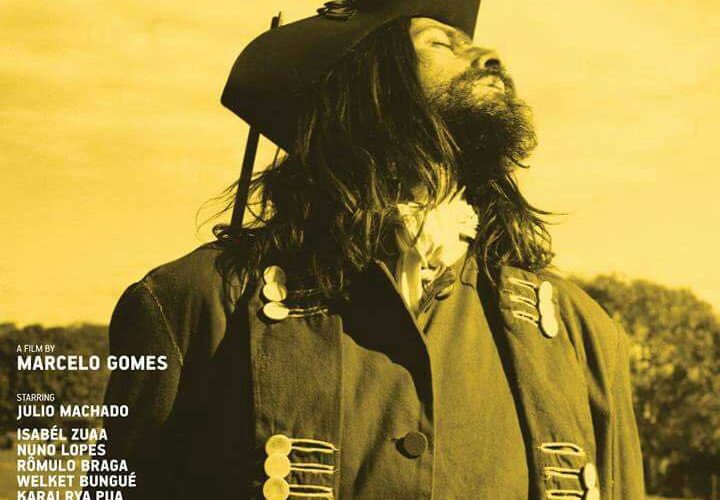“Gold ruins everything. First the land, then the man.” That’s the gist of Marcelo Gomes’ ambitious historical epic, set in 18th-century Brazil when the South American colony’s people and resources were being exploited under Portuguese oppression. A fictional tale partly based on the life of leading Brazilian separatist Tiradentes (real name Joaquim José da Silva Xavier), Gomes’ film aims to keep the spirit rather than adhere to true events of his nascent independence movement. It’s more a reflection on how inequality and oppression so endemic in colonial times continue into today’s Brazil.
Joaquim (Julio Machado, a rugged Hugh Jackman look-a-like) is a soldier serving the Portuguese crown, catching smugglers in a part of Brazil whose formerly rich supply of gold is running dry. His poor upbringing is still better than the slaves and “indians” who work under him, with whom he gets on better than many of his Portuguese peers. He is in love with one of them, a slave they name Blackie (a gutsy Isabél Zuaa), and his plan to set her free when he gets a promotion (and money) is early indication that solving endemic injustice is only a priority when it benefits him.

Joaquim is soon sent on an expedition to trace gold deep in the countryside (filmed all on location in Minas Gerais), a search all the more urgent as the region needs money to pay hefty taxes to the Portuguese crown. He’s also promised a large cut of whatever he finds. But just as wealth corrupts, the promise of it is draining, and Joaquim’s loyal team starts to fall apart.
This section is where Gomes proves most confident, a road movie on horseback that has touches of a western or Amazon-set Embrace of the Serpent. More obviously, in cinematographer Pierre de Kerchove‘s fine eye for landscapes, compares with another South American historical fable, 2014’s Jauja.
Machado brings muscular presence to Joaquim, a restless individual whose independent thinking doesn’t arrive fully formed. Instead it incrementally develops as his disenchantment with colonial structures takes shape. A key scene comes mid-way through the film, when his slave (Welket Bungué) and their indigenous guide (Karai Rya Pua) find themselves singing in harmony — “an 18th-century hip-hop,” says the director. Even in servitude and with a language barrier, these two find a way to communicate positively. That’s unlike the free men of the expedition, including Joaquim and his biracial underling Januário (Rômulo Braga), whose desire (and need) for money leads to infighting and resentment. But are they really free men?

It’s perhaps problematic that the writer-director seems to equate slavery with those free men under colonial rule. Moreover, even though slaves are brutally treated here – Zuaa’s character is raped daily – they seem unnecessarily peripheral to the action. It’s especially egregious, as Brazil was one of the last countries to outlaw slavery – in 1888.
It’s not unrelated to how Gomes’ script doesn’t quite find the right way to join Joaquim’s realization of injustice and his belief in a state free of Portuguese influence. That insecurity is best summed up by the film’s rather sudden and stilted ending, coming before Joaquim became a leader in the separatist forces, and took up his mantle of Tiradentes, a freedom fighter second only to Simon Bolivar in Latin America’s creation myths. The film cuts to black seemingly halfway through the story. And that second half is what this film should have set up.
Joaquim premiered at Berlin Film Festival.

